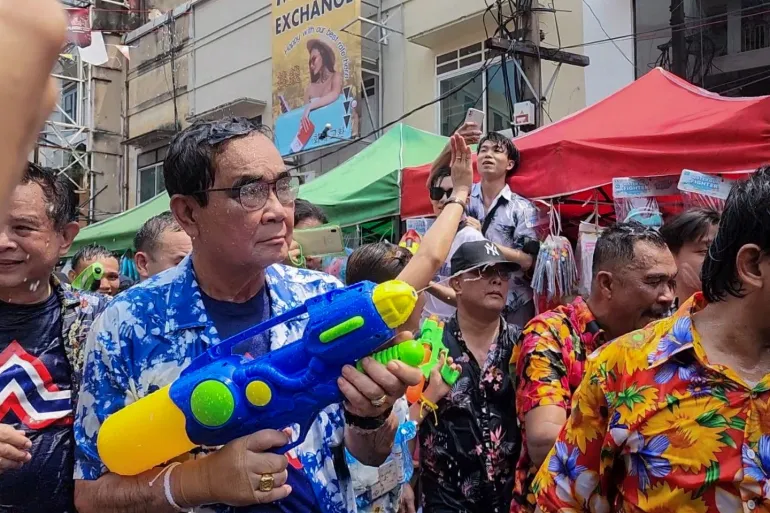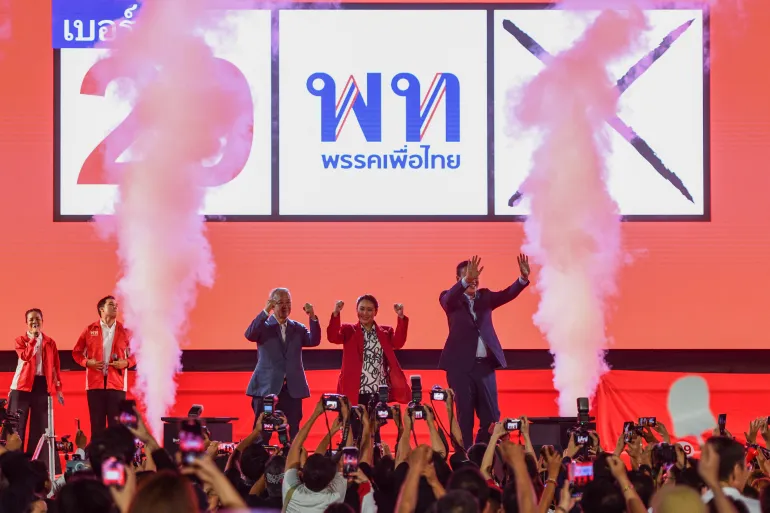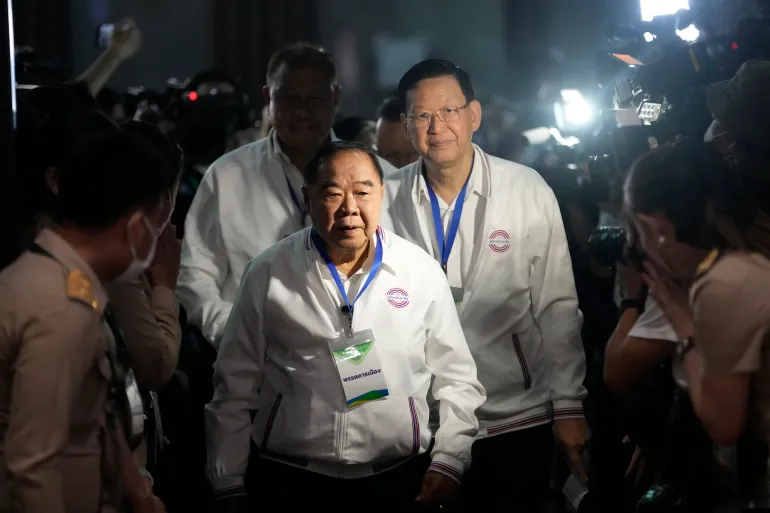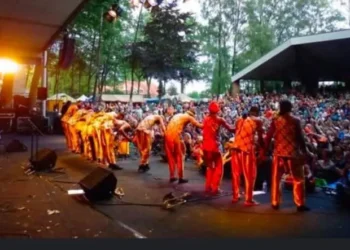Thailand is scheduled to hold general elections on the May 14, 2023. The atmosphere in Thailand has been heated, since campaigning have been intensified by the contesting parties.
Last month, as Thais took part in a flurry of water battles to celebrate the Songkran festival, Prime Minister Prayuth Chan-ocha, hoped that the celebration would boost his poor re-election campaign.

Dressed in a bright Hawaiian shirt, and armed with a large blue water gun, Prayuth, the Army General-turned-Politician, who led the coup that toppled Yingluck Shinawatra’s government in 2014, made an unexpected appearance on Bangkok’s Khao San Road, joining excited festival goers in the customary water fights.
The political and foreign policies of Thailand will be decided by the May 14 elections, as the quasi-military government has been dealing with rising domestic unrest, security concerns from neighboring, Myanmar’s, and escalating rivalry between the United States and China.
Thailand has gotten closer to China under Prayuth, voted no on the UN resolution denouncing Russia’s invasion of Ukraine, and praised the coup leaders in Myanmar, but if he is replaced, everything might change.

Prayuth, 69, is well behind his younger competitors, Pheu Thai Party head, Paetongtarn Shinawatra, 36, and Move Forward Party leader, Pita Limjaroenrat, according to opinion polls. Paetongtarn happens to be Yingluck’s niece and the child of former Prime Minister Thaksin Shinawatra, who was also deposed in a coup.
Analysts are concerned about a major political showdown since Pheu Thai Party and Move Forward Party have proven to be extraordinarily durable, despite ongoing crackdowns on opposition parties.
However, some young progressive voters have expressed concern over reports that PTP, which evolved from earlier Thaksin-affiliated parties, may be open to making a deal with them.
“I’ll vote for the MFP because they stand firm with democracy and won’t collude with those involved in coup d’états. They have a proper policy manifesto that seeks to address many problems in Thai society,” Sirikanda Jariyanukoon, a 26-year-old public relations consultant from the southern Thai city of Nakhon Si Thammarat, said in an interview.
Jariyanukoon, who is lining up to cast her second vote in her adult life said, she would not vote for PTP because “it’s time to have new people, new parties, and a new way of conducting politics,” adding that “the old style no longer fits.”
Moreover, the desire for change was evident in the 2019 election, when Thanathorn Juangroongruangkit of the Future Forward Party shocked Thailand’s ruling class by placing third. After the elections, the government took action to exclude Thanathorn from politics and dissolved the party, which resulted in the formation of MFP, which had a similar reform agenda.
“I’m rooting for MFP and support Pita as PM. I used to support the PTP but their policies and communications are too desperate. MFP has taken over as the bearer of progressivism,” Rawipa, a resident of Bangkok, averred.
“Thai people have been more active in politics over the past few years. I doubt Prayuth and his comrades could deny the will of the people forever,” she explained, adding that there were widespread resentments against Prayuth’s governance. Rawipa also wants a reform of the political system to guard against future coups and populist leaders.
Thailand After The Election
It is simple to ignore that, Thailand’s military plays a significant role in the country’s parliamentary system when PTP and MFP are actively canvassing for votes.
The 250 senators nominated by the military, in addition to the 500 members of the House of Representatives, will vote on the poll’s results. The two largest pro-democracy parties and their supporters may therefore require more than 75% of the seats (376) in order to be able to form a government.
That is predicated on the idea that, authorities won’t dissolve opposition political parties or prevent their members from holding office, after the election.

Prayuth is chief of the royalist United Thai Nation Party, while Deputy Prime Minister Prawit Wongsuwan, a former army commander-in-chief, is leading the Palang Pracharath (PPRP), the military party that Prayuth set up as a vehicle for his 2019 campaign. Both men have denied rumors of a disagreement.
In an interview some months ago, Prayuth said, “I am confident that we will win at least 25 seats,” referring to the minimum number of seats required for a party to nominate a candidate for the top job.




















